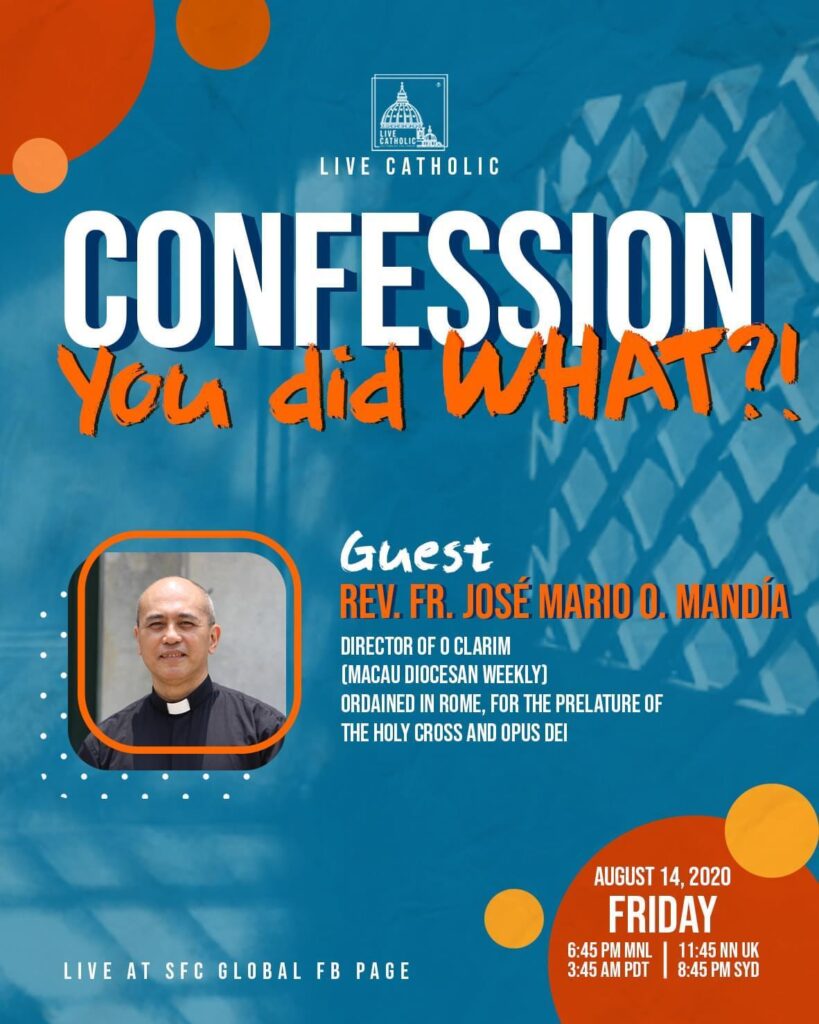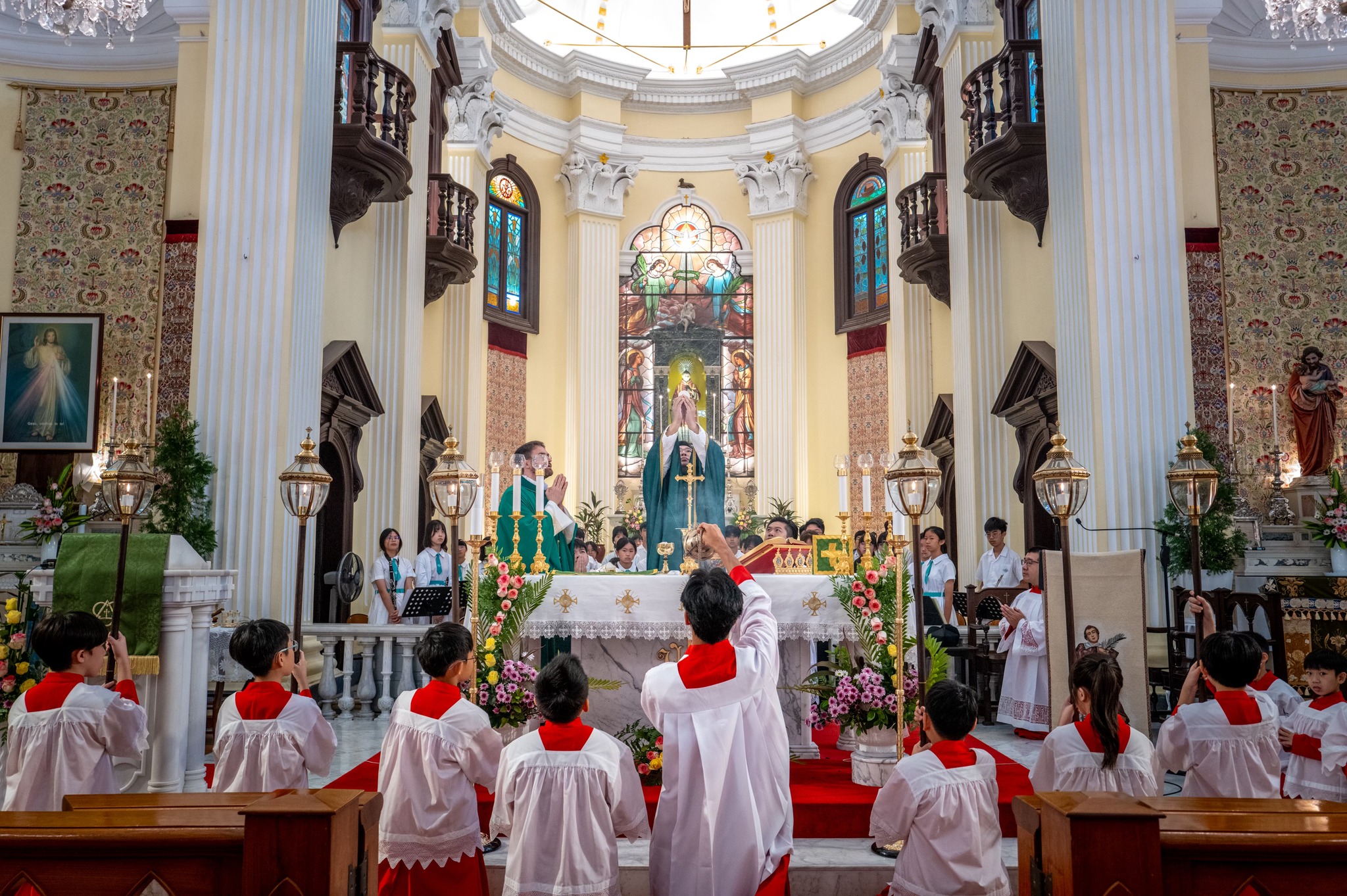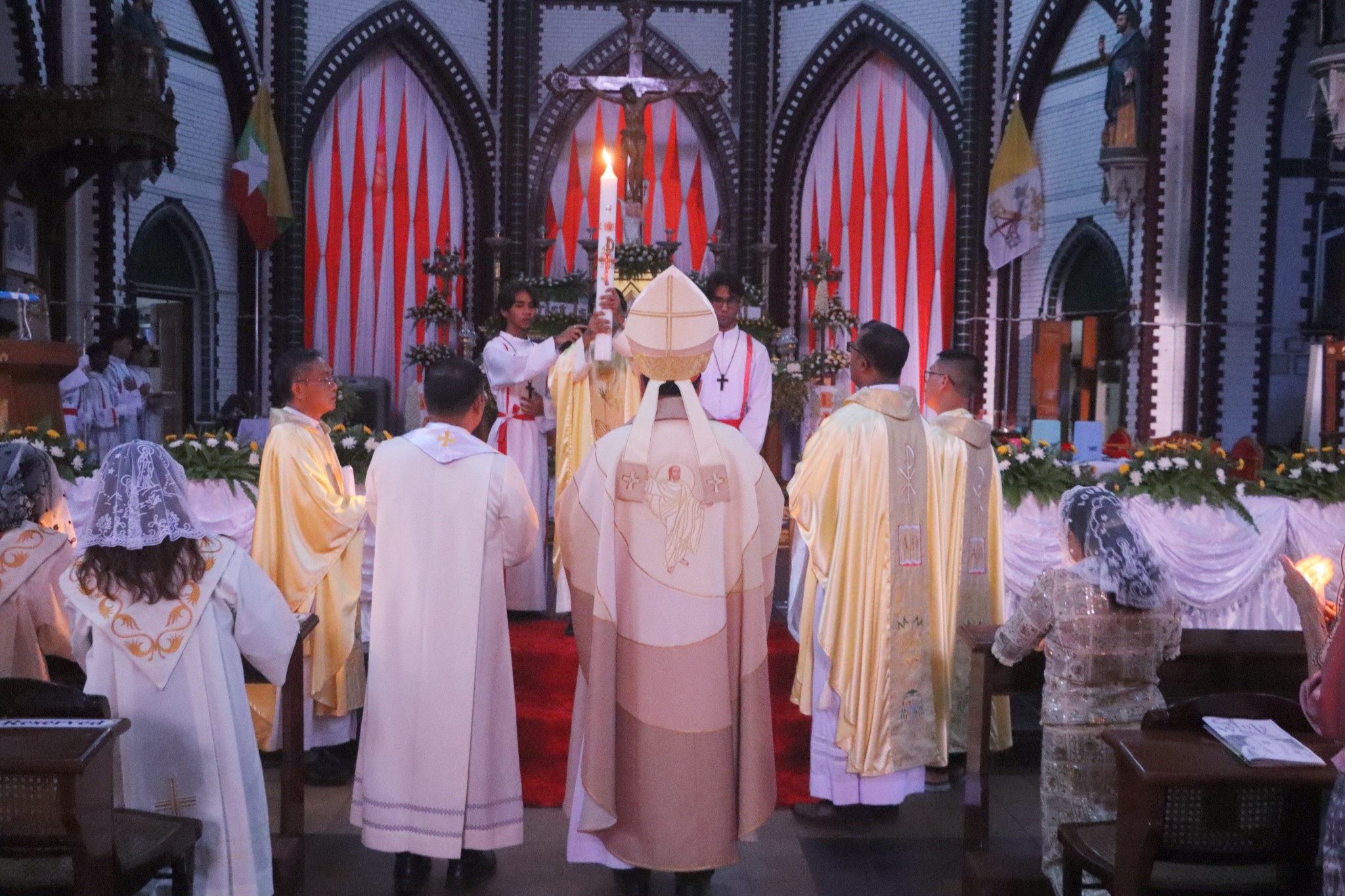Danilo Perez Ngo
On 14 August 2020, Live Catholic Online, a program hosted by Singles for Christ, invited O Clarim director Fr Joey Mandía for an online conversation on the Sacrament of Reconciliation. The program which began at 6:45 PM, Manila time, was followed by listeners on Facebook from the four corners of the globe.
Singles for Christ (SFC Global) is a ministry of the Couples for Christ (CFC). SFC caters to young adults from 21 to 40 years old. SFC is now present all over the world carrying its vision to let “every single man and woman all over the world to experience Christ.” Here is the first question of the interview.
SFC: What are the Sacraments?
Fr Mandía: It’s a great honor to speak about confession because this topic is very close to the heart of the Holy Father. Remember that when he became pope, in one of his first homilies or audiences, he said: “God never tires of forgiving, but we get tired of asking for forgiveness.” He repeated this on several occasions, also in the book The Name of God is Mercy, where we find the thoughts of Pope Francis about Confession. Even his own coat of arms shows [the Pope’s] great devotion to God’s mercy. Confession is about the Mercy of God.
But as you asked earlier, let me talk a little bit first about the Sacraments. You’ve mentioned earlier that through the Sacraments, God gives us his grace. We know that the Sacraments, as defined in the Catechism of the Catholic Church, are visible signs of God’s invisible grace. What are the signs in the Sacraments? First, you have some material thing that you use, for example, in baptism, we use water; in confirmation, we use chrism; in the Eucharist, we use bread and wine and so on. So, it’s something that you can touch practically. Second, it’s an action that you can see, like you pour the water on the person to be baptized; you anoint with the chrism – that’s also an action – and then you offer the bread and wine and it’s blessed, broken and given. Those are also actions. Third, there are words that are pronounced and that you hear. So we can see, we can touch, and we can hear – why is this?
Well this is because God, when He does something for man, takes into account what we are, how we are, and how we know especially. God knows that we only know by observing things. Without the senses, we cannot know anything. So we need our senses to know things and God knows this: we can know only by seeing, by touching by tasting, etc. So, this is why, when Jesus came to earth, He became man – a person that you can see. That’s what St. John says in his epistle – that “which we have heard, which we have seen with our eyes, which we have looked upon and touched with our hands …” (I John 1:1). Who was he talking about? Jesus Christ. The invisible God becomes visible. Starting from there, God sends a Savior, who becomes visible, whom we can see, touch and hear. And this visible emissary of God, establishes a Church, which is also visible and not only a spiritual thing – the Pope, the bishops, the priests, and the faithful form the Church.
Inside this Church, He also instituted visible signs, by which we can know that indeed we are receiving grace. Many times, I explain it this way: Sacraments are like certificates. When you graduate from school, you get a certificate, proof that you have graduated. The Sacraments prove, just like a signature, that you have received grace. When a child is baptized, you see the sign, the water is being poured into his head and the words are being pronounced – those are the signs that he is part of us now. He is one of the family. The same thing with the other Sacraments. It is important to understand this, for us to understand what confession is, because confession is also a sign that requires a visible encounter with someone who represents God and, in this case, it is a priest.
That’s how it is, practical, because our God is also practical. He knows that if we don’t see, we won’t believe that something happens. It is His proof, [His way of telling us] “Hey, you have received grace,” or “Your sins are forgiven.”


 Follow
Follow


